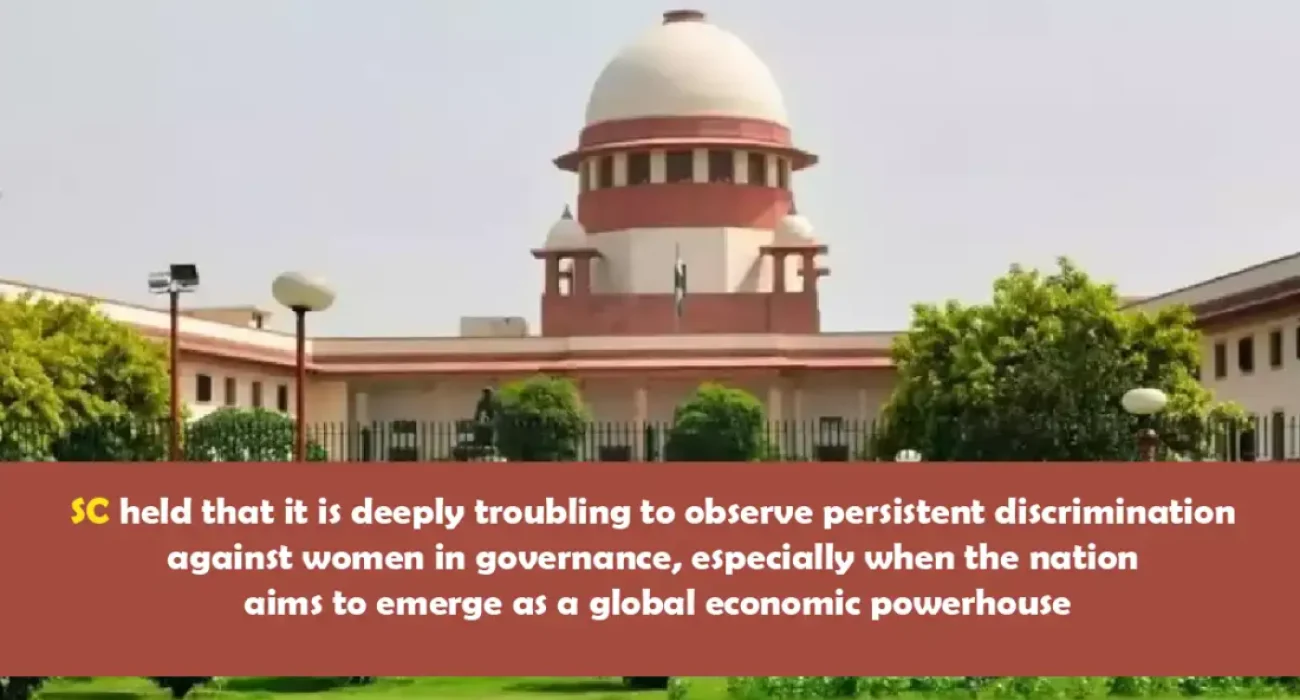

Table of Contents
ToggleThe appellant, a 27-year-old woman, contested and won the 2020 Sarpanch election for Sajbahar Gram Panchayat in District Jashpur, Chhattisgarh, with a significant margin. After assuming office, she initiated several developmental projects aimed at improving the village’s infrastructure and economy, including 10 construction projects under the Mahatma Gandhi Rural Industrial Park Scheme (RIPA). However, the Chief Executive Officer (CEO) of the Janpad Panchayat issued a work order on December 16, 2022, mandating completion within three months, but the order was served only on March 21, 2023, after the stipulated period had already ended. Despite her efforts, the delay was attributed to the appellant, leading to a Show-Cause Notice on May 26, 2023, followed by a chargesheet and her removal from office on January 18, 2024. Attempts to seek redressal from higher authorities and the High Court were unsuccessful, prompting her to approach the Supreme Court.
The appellant argued that the delay in project completion was not attributable to her but was due to the late issuance of the work order and bureaucratic inefficiencies. She asserted that she had diligently performed her duties and responded to the Show-Cause Notice with a valid explanation. Despite this, she was removed from office without a fair hearing, violating the principles of natural justice.
The State of Chhattisgarh contended that the appellant was given sufficient opportunity to present her case and that the inquiry was conducted in accordance with the Chhattisgarh Panchayat Raj Adhiniyam, 1993, and the Chhattisgarh Panchayats (Appeal and Revision) Rules, 1995. It further alleged that the appellant failed to submit Work Completion Reports on multiple occasions, justifying her removal.
The Court observed that the case demonstrated administrative imperiousness and malice. It noted that the appellant, a committed and democratically elected representative, faced a coordinated effort by Panchayat members and administrative officials to undermine her credibility and obstruct her developmental initiatives. The delay in serving the work order and the subsequent acceptance of unsubstantiated allegations against the appellant were seen as part of a calculated strategy to remove her from office.
The Court criticized the lack of adherence to natural justice principles and questioned how a junior officer, such as the Sub-Divisional Officer (Revenue), could arbitrarily remove an elected representative without proper scrutiny. It emphasized the distinction between elected representatives and bureaucrats and condemned the colonial mindset that treats elected officials as subordinates.
The Court also highlighted a systemic issue of prejudice against female Sarpanches, citing similar cases where female leaders in rural areas face unfair treatment and are removed from office on flimsy grounds. It called for introspection and reform to address this entrenched bias and promote women’s empowerment in governance.
The Supreme Court quashed the removal order dated January 18, 2024, and the High Court’s dismissal of the appellant’s appeal dated February 29, 2024. It reinstated the appellant as the Sarpanch of Sajbahar Gram Panchayat for the remainder of her term.
Additionally, the Court directed the State of Chhattisgarh to pay the appellant ₹1,00,000 as compensation for the harassment and legal expenses, to be paid within four weeks. The Chief Secretary was instructed to conduct an inquiry into the officials responsible for the appellant’s removal, with liberty for the State to recover the compensation amount from the erring officials in accordance with natural justice principles. All pending interlocutory applications were disposed of accordingly.
IAW resources
Browse our help directory